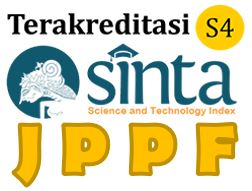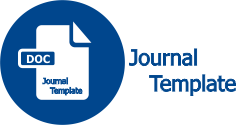Validity Analysis of Electronic Student Worksheets Based on Guided Inquiry to Improve Students' Critical Thinking Skills
DOI:
https://doi.org/10.24036/jppf.v11i1.12Keywords:
Guided inquiry model, critical thinking, liveworksheet, temperature and heatAbstract
This research was motivated by the fact that the teaching materials used in physics learning are still largely dominated by conventional textbooks, teacher’s books, and Student Worksheets (SWS). The aim of this study is to develop guided inquiry-based Student Worksheets that can enhance students' critical thinking skills in the topics of temperature and heat. The developed Student Worksheets are expected to be not only valid in terms of content and structure but also effective in facilitating a more meaningful learning experience for students. This study employs a Research and Development (R&D) approach. The validation process was carried out by three physics lecturers from the State University of Padang (UNP). The analysis of the validation instrument results showed that the developed Student Worksheets obtained a validation score of 0.95, which falls into the "very valid" category. Therefore, the product developed in this study a guided inquiry-based Student Worksheet is considered valid and suitable for use as an innovative teaching material to improve students' critical thinking skills in understanding the concepts of temperature and heat.
Downloads
References
Aiken, L. R. (1985). Three coefficients for analysing the reliability and validity of ratings, educational and psychological instruments. Educational and Psychological Measurement, 45(1), 131-142.
Ahzari, S. (2024). Effects Of Physics Teaching Materials On Students' Critical Thinking And Creative Thinking Skills: A Meta-Analysis. 9(1), 150-160.
Aritonang, P. S. F. B. (2023). Development of E-LKPD based on guided inquiry to improve students' critical thinking skills on momentum and impulse material (Doctoral dissertation, UIN Sunan Gunung Djati Bandung).
Asnaini, A. (2017). Development of LKPD Based on Scientific Approach to Improve Learning Outcomes and Student Activities on Buffer Solution Material. Lantanida Journal, 4(1), 60. Https://Doi.Org/10.22373/Lj.V4i1.1868
Cahyanto, A., Lesmono, A. D., & Handayani, R. D. (2022). Development of Interactive E- Modules Based on Articulate Storyline 3 to Train Critical Thinking Skills on the Subject of Sound Waves. Journal of Physics Education Literacy (JLPF), 3(2), 154-164. Https://Doi.Org/10.30872/Jlpf.V3i2.1551
Devi, R. M. (2022). Development of E-LKPD based on Guided Inquiry to Improve Critical Thinking Skills of Junior High School Students. Eduscience Journal, 9(2), 405-417. Https://Doi.Org/10.36987/Jes.V9i2.2810
Directorate of High School Development. (2010). Guide to the Development of ICT-Based Teaching Materials. Jakarta: Dikmen.
Ennis, R. H. (2011). The Nature Of Critical Thinking: An Outline Of Critical Thinking Dispositions And Abilities. University Of Illinois.
Hasanah, K. D., Wahab, D. A. S., Nawali, J., Savika, H. I., & Yaqin, M. Z. N. (2024). The Role and Variety of Relevant Teaching Materials (Print and Non-Print) in Language and Cultural Arts Learning at SDI Surya Buana Malang. Journal of Islamic Basic Education, 5(1), 361-378.
Herdila, P., Herlina, K., & Anggreini. (2024). Development Of Problem Based E-Module To Train Higher Order Thinking Skills On Temperature And Heat Material. Journal of Physics Learning Research, 15(3), 293-300.
Ministry of Education and Culture of the Republic of Indonesia. (2016). Regulation of theMinister of Education and Culture of the Republic of Indonesia Number 8 of 2016 concerning Books Used by Education Units. Jakarta: Ministry of Education and Culture.
Ministry of Education, Culture, Research and Technology. (2024). Curriculum in Early Childhood Education, Primary Education, and Secondary Education. Ministry of Education, Culture, Research, and Technology Regulation Number 12 of 2024, 1-26.
Kurniawan, N. A., Hidayah, N., & Rahman, D. H. (2021). Analysis of Critical Thinking Skills of Vocational School Students. Journal of Education: Theory, Research, and Development, 6(3), 334. Https://Doi.Org/10.17977/Jptpp.V6i3.14579
Masruhah, G. D., Rusdianto, R., & Wahyuni, S. (2022). Development of E-LKPD based on guided inquiry to improve junior high school students' science process skills. SAP (Susunan Artikel Pendidikan), 7(1). Https://Doi.Org/10.30998/Sap.V7i1.12935
Nurdyansyah, & Fahyuni, E. F. (2016). Learning Model Innovation: In accordance with the 2013 Curriculum. Surabaya: Nizamial Learning Centre.
Payu, C. S., Hermanto, I. M., & Yunus, M. (2023). Validating An Innovative Guided Inquiry Learning Model For Critical Thinking In Temperature And Heat Concepts. Scientific Journal of Education Profession, 8(4), 2605-2613. Https://Doi.Org/10.29303/Jipp.V8i4.1835
Pribadi, Y. T., Sholeh, D. A., & Auliaty, Y. (2021). Development of E-LKPD on Fractional Numbers Material Based on Problem-Based Learning in Class IV Elementary School. Prima Magistra: Scientific Journal of Education, 2(2), 264-279. Https://Doi.Org/10.37478/Jpm.V2i2.1116
Ratumanan, T. G., & Rosmiati, I. (2023). Learning Planning (2nd Edition, 3rd Mould).
Rajawali Press. Sartini, & Mulyono, R. (2022). Analysis of the Implementation of Merdeka Belajar Curriculum to Prepare for 21st Century Learning: Scientific Journal of PGSD STKIP Subang, 8(2), 1348-1363. Https://Doi.Org/10.36989/Didaktik.V8i2.392
Sati, S., & Mutmainnah, I. (2023). Development of an Inquiry-Based Learner Worksheet (LKPD) to Improve the Scientific Attitude of Elementary School Learners. Basicedu Journal, 7(1), 1041-1051. Https://Doi.Org/10.31004/Basicedu.V7i1.4815
Sugiyono. (2012). Quantitative, Qualitative, and R&D Research Methods. Bandung: Alfabeta.
Susilawati, E., Agustinasari, A., Samsudin, A., & Siahaan, P. (2020). Analysis of Critical Thinking Skills Level of High School Students. Journal of Physics and Technology Education, 6(1), 11-16. Https://Doi.Org/10.29303/Jpft.V6i1.1453
Widiyanti, T., & Nisa, A. F. (2013). Educators on Science Learning in Grade V, 1269-1283.
Winarmo, N. (2024). DEVELOPMENT OF PROJECT BASED LEARNING BASED E - LKPD TO IMPROVE SKILLS. 4(11). Https://Doi.Org/10.17977/Um067.V4.I11.2024.3
Yuzan, I. F., & Jahro, I. S. (2022). Development of E-LKPD based on guided inquiry on the subject of chemical bonding to measure students' critical thinking skills. Encyclopedia: Saburai Journal of Education and Learning Innovation, 2(01), 54-65. Https://Doi.Org/10.24967/Esp.V2i01.1598
Downloads
Published
Issue
Section
License
Copyright (c) 2025 Wulandahri Wulandahri, Hidayati, Yenni Darvina, Fuja Novitra (Author)

This work is licensed under a Creative Commons Attribution 4.0 International License.





